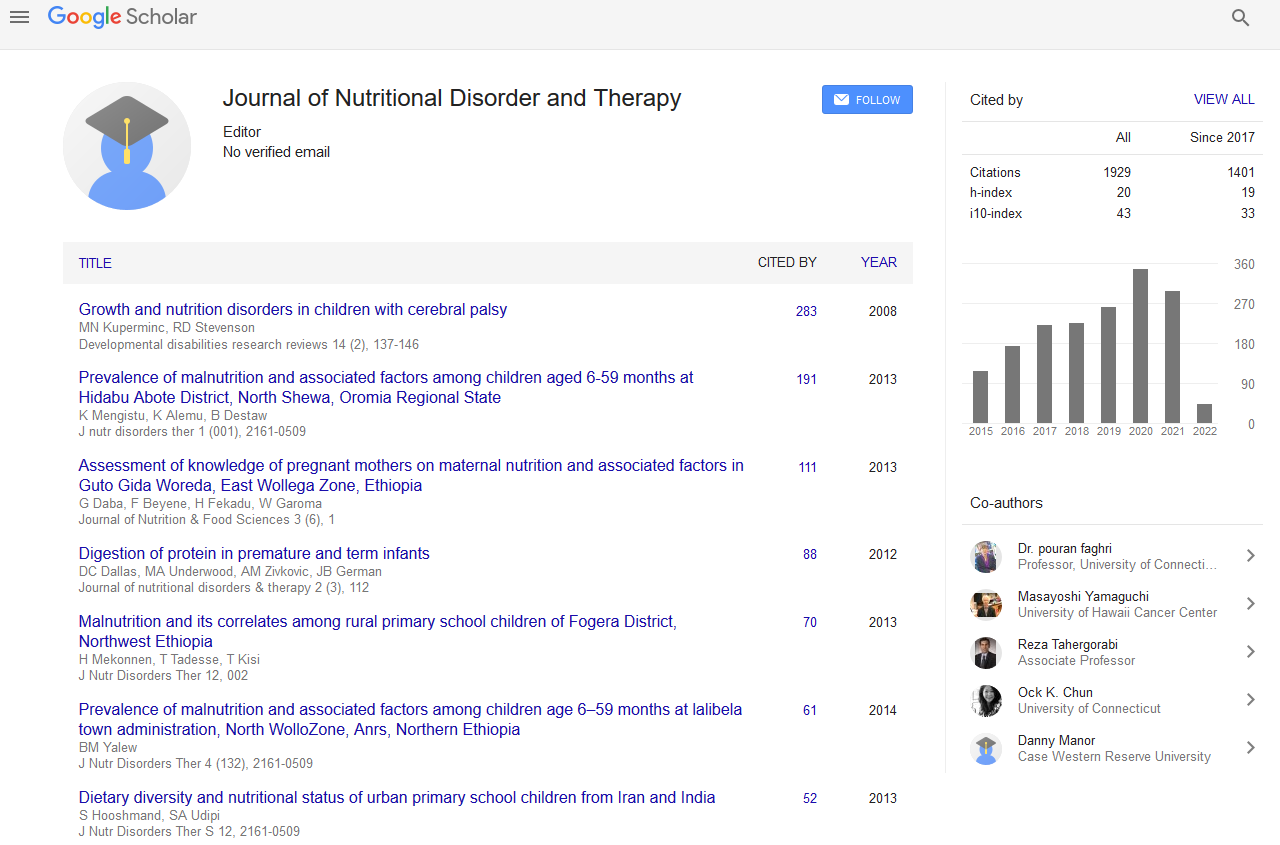Indexed In
- Open J Gate
- Genamics JournalSeek
- Academic Keys
- JournalTOCs
- Ulrich's Periodicals Directory
- RefSeek
- Hamdard University
- EBSCO A-Z
- OCLC- WorldCat
- Publons
- Geneva Foundation for Medical Education and Research
- Euro Pub
Useful Links
Share This Page
Journal Flyer

Open Access Journals
- Agri and Aquaculture
- Biochemistry
- Bioinformatics & Systems Biology
- Business & Management
- Chemistry
- Clinical Sciences
- Engineering
- Food & Nutrition
- General Science
- Genetics & Molecular Biology
- Immunology & Microbiology
- Medical Sciences
- Neuroscience & Psychology
- Nursing & Health Care
- Pharmaceutical Sciences
Abstract
Prevention of Acute Malnutrition During the Lean Season:Comparison of a Lipid-Based Nutrient Supplement and an Improved Dry Ration, South Darfur,Sudan. A Quasi-Experimental Study
Leisel Talley, ErinBoyd, Fawzia el Sharief, CurtisBlanton, Mohamed OmerAli and Maha Mohamed Omer AbdEl rahman
Objective: To assess the nutritional impact of a Lipid-Based Nutrient Supplement (LNS) and an Improved Dry Ration (IDR) in blanket supplementary feeding programs.
Design: Longitudinal, quasi experimental non-randomized study
Setting: Otash and Al Salaam internally displaced persons camps, South Darfur, Sudan
Subjects: Children aged 6-36 months were randomly selected for inclusion in the study based on height cut-off of 95 cm and were anthropometrically assessed (weight-for-height z scores [WHZ] based on WHO standards, edema presence, and midupper arm circumference) monthly. IDR was distributed in Otash camp and LNS in Al Salaam.
Main findings: At baseline, 658 and 893 children were enrolled and 159 and 187 children were assessed at all 4 distributions in Otash and Al Salaam camps, respectively; There was no significant difference in mean WHZ between the two groups at baseline, (Otash=-1.18 and Al Salaam=-1.03, p=0.17). Children receiving LNS had higher mean WHZ than those receiving IDR. Significant differences were detected at months 2-4, for the mean WHZ of the LNS cohort, and at 4 months, for the difference of the difference in mean WHZ (-0.23) between camps, p= 0.02.
Conclusions: LNS may be an option for preventing acute malnutrition in humanitarian settings, however research is needed on the timing, duration of use and cost effectiveness.


